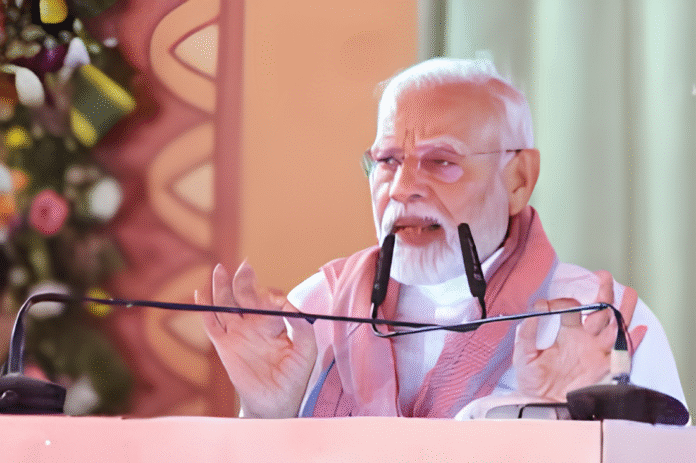Published: May 22, 2025
NEW DELHI – Indian Prime Minister Narendra Modi on Thursday escalated tensions with Pakistan, declaring that Islamabad will not receive water from rivers over which India holds rights. The statement comes nearly a month after a deadly terrorist attack in Indian Illegally Occupied Jammu and Kashmir (IIOJK), which New Delhi blames on Pakistan.
Speaking at a public event in Rajasthan, Modi warned, “Pakistan will have to pay a heavy price for every terrorist attack. Pakistan’s army will pay it, Pakistan’s economy will pay it.”
The remarks follow India’s suspension of the Indus Waters Treaty (IWT)—a historic water-sharing agreement brokered by the World Bank in 1960. The treaty ensures that 80% of Pakistan’s agricultural land receives irrigation from three major rivers that flow from India.
Tensions between the nuclear-armed neighbours spiked after the April 22 attack, which left 26 dead, mostly Hindu tourists, in IIOJK. India retaliated with missile strikes targeting Pakistani cities, marking the most severe cross-border military escalation in nearly three decades. A ceasefire was reached on May 10, though Modi’s comments suggest India is maintaining a hardened stance.
Indian Foreign Minister Subrahmanyam Jaishankar reiterated this approach, telling Dutch media that military operations would continue. “If the terrorists are in Pakistan, we will hit them where they are,” Jaishankar said. “There will be a response to acts like those on April 22.”
Despite the inflammatory rhetoric, Pakistan’s Finance Minister recently stated that the suspension of the treaty would not have an “immediate impact” on the country’s water supply. However, experts warn that a prolonged disruption could severely affect Pakistan’s agriculture sector and economy.
As of now, Pakistan has not officially responded to Modi or Jaishankar’s latest statements.
The diplomatic standoff has also led to the suspension of trade, closure of land borders, and a near-total halt to visa processing between the two countries.
With regional stability at risk, international observers are urging both sides to return to dialogue and avoid further military confrontation.



